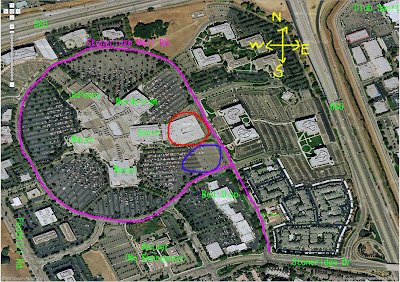Now, new research indicates that there is also a very significant amount of actual brain damage being found in returning soldiers and recent Vets.
 The figures indicate that this happens FIVE TIMES more frequently than the army has been willing to admit to.
The figures indicate that this happens FIVE TIMES more frequently than the army has been willing to admit to.Listen to the NPRs interview (title link) with USA Today reporter Gregg Zoroya on his findings on the presence of brain trauma in soldiers returning from Afghanistan and Iraq. The army had reported only 4,000 so affected, but this study indicates that the numbers are 20,000 (so far), and that the vast majority of war returnees have not even been screened yet!
Another startling 'statistic' on veterans indicates that 1/3 of all the homeless in the U.S. A. are veterans. A rough estimate puts that at nearly a million vets (estimates range from 780,000 to 970,000 depending on who-take a look at some typical stats here, here and on Oldtimer.). A rough conservative calculation indicates that there are over 30 million Americans who could be classified as poor and of all of these about 1 in 10 is homeless. Another horrifying fact is that another one third of the homeless are children! One can expect that these stats will only get worse as the Iraq war returnees have experienced much longer tours of duty (than their Vietnam Vet friends) and will probably reach the crash out points that much faster. Add to that the spate of failed mortgages and the effects on families of losing their homes and their savings and you have a recipe for disaster.
I am not surprised that war veterans have suffered injuries that are both physically debilitating and mentally incapacitating. The chances of these sacrificial lambs successfully making it back into 'normal' life is always slim. What is surprising, very surprising, is that the army loudly touts it's ability to "take care of its own", but very obviously does not.
Soldiering has thus become just one more functionality in postmodern America. The lack of ideology is not as horrifying as the show of absolute callousness. It is quite impossible to believe that our armed forces do not know, did not anticipate, the sort of damage that our kids would be facing. Certainly, over four years into the war, they cannot only now be 'discovering' brain damage in returned vets. One naturally wonders how many of those in-service now are already suffering from such brain damage and either do not know it or are afraid to have it found out? The scenario is likely very similar to what is still the case for PTSD - denial.

Typically, the Neocon response has been to laugh it all off, with the Democrats not far behind, for this is a scandal of betrayal on a massive scale and it has been perpetrated in a singularly nonpartisan manner.
People, we are not talking about spin!
This is something much more like an information black hole - And with an election coming up too!




















